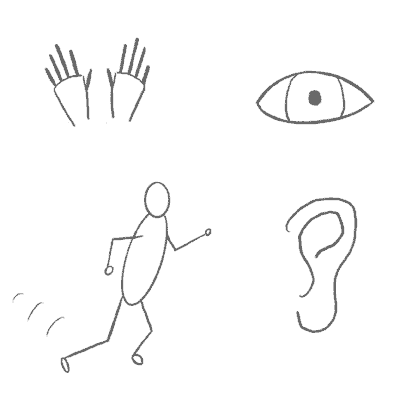As you help your child with their homework, you may sometimes wonder, “What are you doing? Why do you not understand what I am saying?”
I know many parents of dyslexic children have had these thoughts.
I understand that, but I also relate to your child because I have also been in a position where I didn’t understand any of my homework. After all, the letters didn’t make any sense.
It is also completely natural to be unable to understand those of us with dyslexia if you’ve never had any trouble making the letters stick in your mind.
Once you understand your child’s thoughts, emotions, and actions, you can be the best parent that your dyslexic child could possibly want.
I can help you achieve that.
Use the apps and tools
Have you also thought about what apps and programs that are best? Then your child could get their homework done without issues…
The dyslexic brain
Have you also been wondering if there is something wrong with your dyslexic child’s brain? That is, why the head cannot comprehend those pesky letters.
Accepting the dyslexia
Is your child also finding it difficult to talk about their thoughts and emotions when the letters are teasing them?
Understand Your Child So You Can Help Them Go Further
Your child might become quiet and sad when you have to do homework. Or they might start doing other things, that are way more entertaining. Or they might even become angry and react more externally.
Your child is not doing this because they love to be sad, upset, or angry.
On the contrary, your child is probably doing it to get away from an uncomfortable situation.
In this case, it is only because of the letters, which just don’t make any sense. They are just doodles.
It can be tough to understand the situation as a parent.
You see the result of your child’s thoughts and feelings in the actions they do. What does that mean? And how can you help your child move past it?
When you understand what is happening—that your child sees the equivalent of hieroglyphs—you will be better equipped to help your child with their needs.
Here, I have three suggestions for how you can better understand your child:
1 – Familiarize yourself with your child’s thoughts and emotions
It can be challenging for a child to have to explain exactly what is happening when the letters screw up.
Therefore, you should do some research on dyslexic people’s thoughts and feelings by reading about it or talking to older individuals with dyslexia who can describe it.
It makes it easier to understand why your child does not immediately write down letters on the paper when you spell words out loud, or why they find 17 other tasks to do when homework is waiting.
I have also collected a lot of knowledge about what dyslexia is right here, which you can also use.
2 – Be a parent
There is no doubt that the well-being of your child creates the best conditions for learning.
All parents want their children to thrive.
However, well-meaning parents can easily fall into the trap of focusing on “curing” dyslexia instead of prioritizing their child’s well-being.
I understand the parents that do this because it is only natural to want to help your child when they are challenged.
But one thing that most dyslexic children do not need from their parents is Mum and Dad using all their free time being tutors or teachers at home.
That way, you all risk living with the situation where being taught takes up all of your child’s time. It is not fun for your child to spend time doing something they are not very good at and still experience difficulty learning.
So, my best and most loving piece of advice for you is the following:
Be a parent! Support your child with the difficult things, and familiarize yourself with your dyslexic child’s world.
But don’t allow dyslexia to take up all the space at home. Home should be your child’s safe space from the letters.
If you homeschool your child, then create clear boundaries—for when it is school time and you are a teacher, and when it is free time and you are a parent.
3 – Cultivate what your child is good at
Those of us with dyslexia are not good with letters. But we are good at many other things.
Your child is definitely also good at a lot of things.
When you understand and help your child to focus on what they are good at, you have a better foundation for understanding their behavior, and you can also easily create a closer relationship.
By focusing on what you are good at, your self-confidence is increased. Your child sees that he or she is good at something and becomes more self-confident. That, in turn, can impact their self-worth.
Your child can better understand that he or she is good enough as they are, when it is not the letters that define who they are.
Motivation to read
Would you also like to motivate your child to read more? And is it difficult to find the right “carrot”?
Learning styles as a dyslexic person
Many believe that a dyslexic person has more difficulties learning and fewer options for further education. But that is not true…
The joy of learning new things
Feelings are the primary motor for learning. Do you also wish that your child would be more eager to learn new things in school?
“I HAVE HELPED MY SON COMPLETELY WRONG”
After one of my talks in which I shared my story, a father to a boy raised his hand and said the following:
“I have realized that I, however well-meaning, have handled my son’s dyslexia in the completely wrong way. I can see that now with your story. Thank you!”
Besides being touched that my story could help him understand his son better, I was also happy for both the father and the son.
The father had discovered that dyslexia could not be fixed. It is a condition that neither he nor his son can change.
But thanks to the dad’s new-found understanding of his son’s dyslexia, he could now help his son based on his needs and not on the father’s non-dyslexic worldview.
All it required was a story from another dyslexic person.
Jesper Sehested
Dyslexic, author, speaker and mentor







